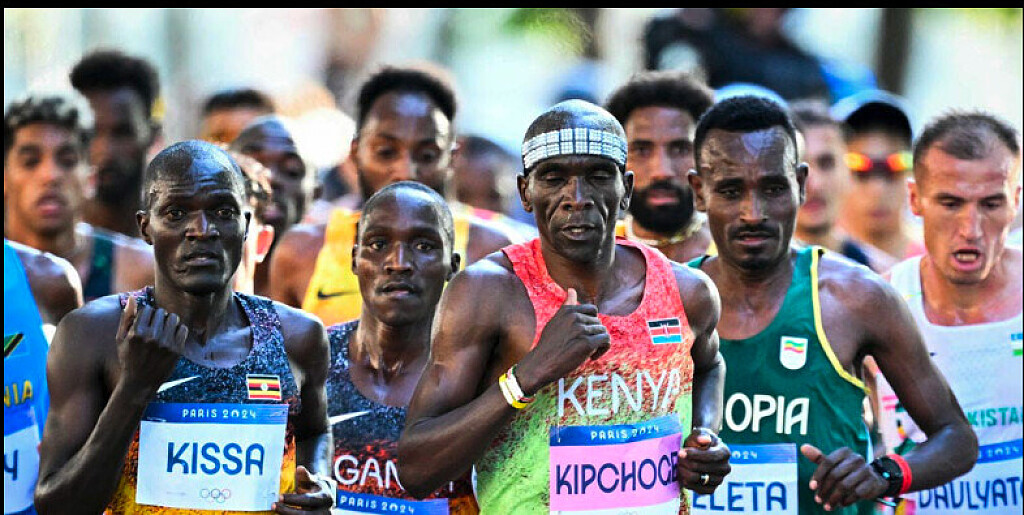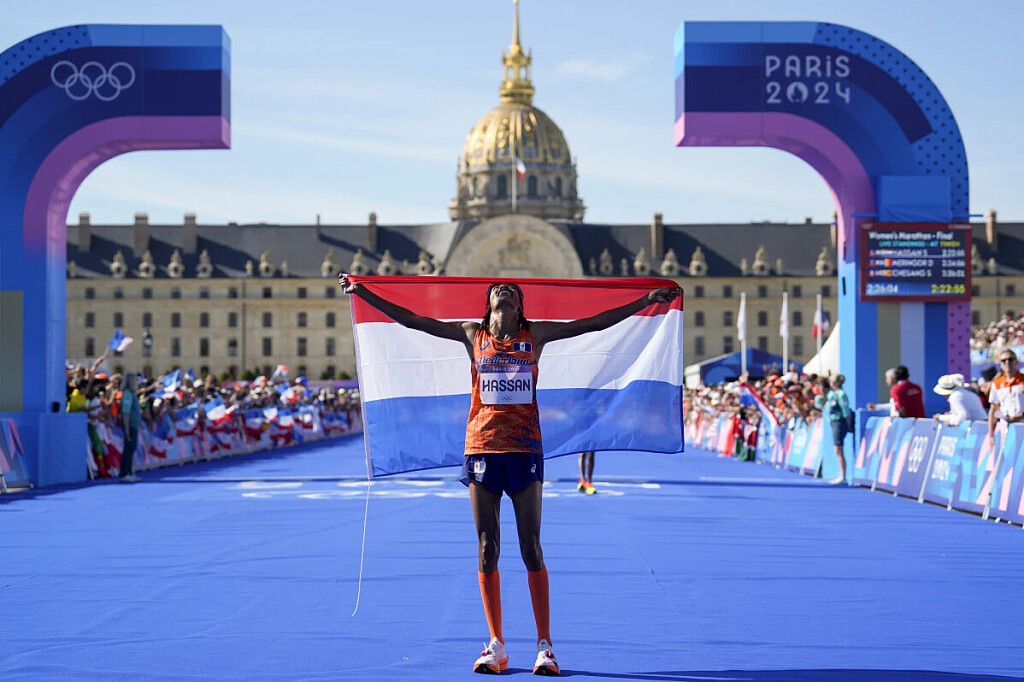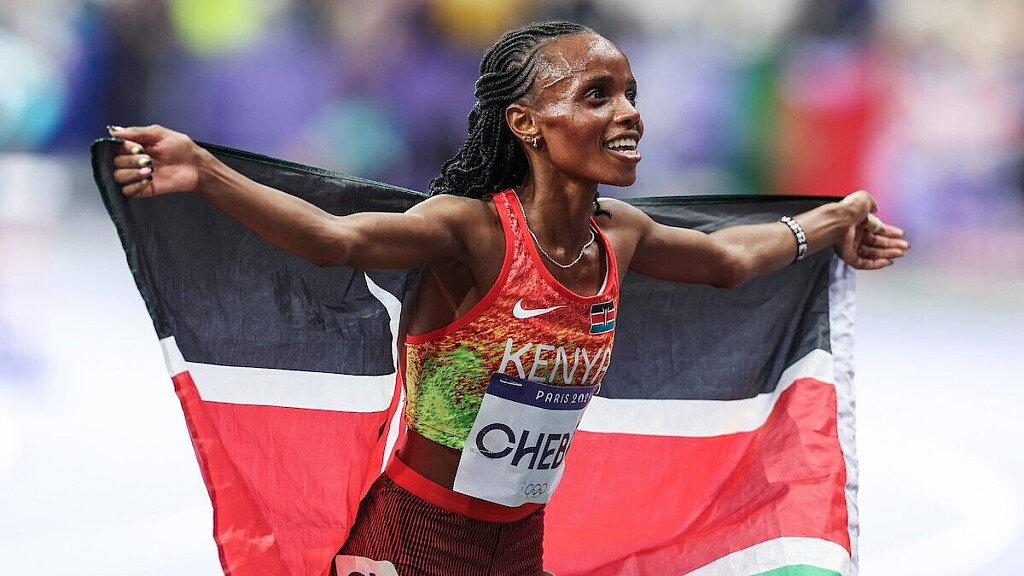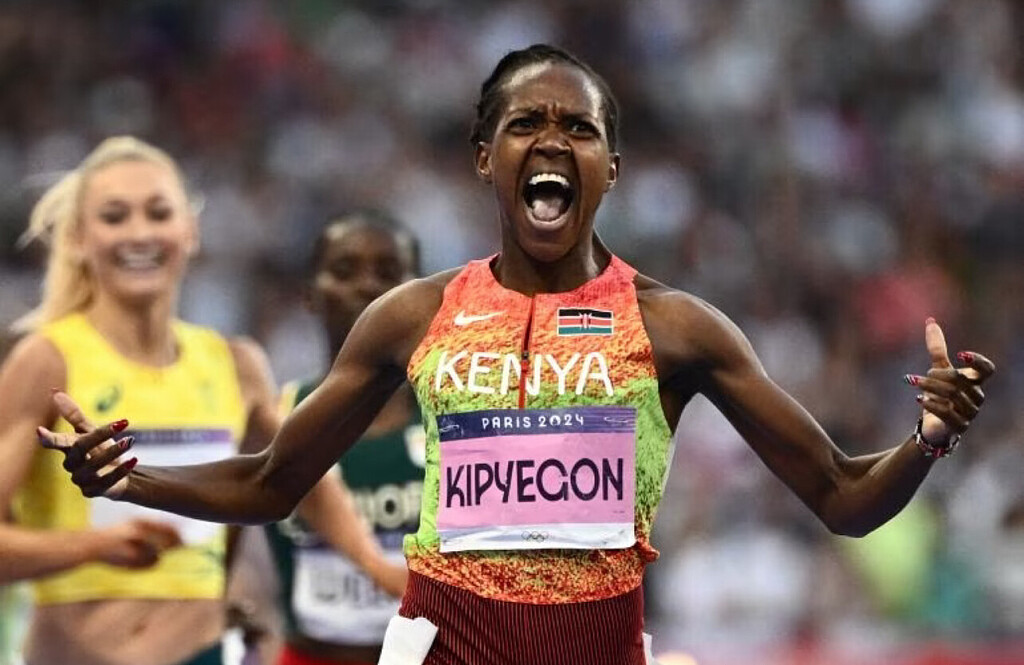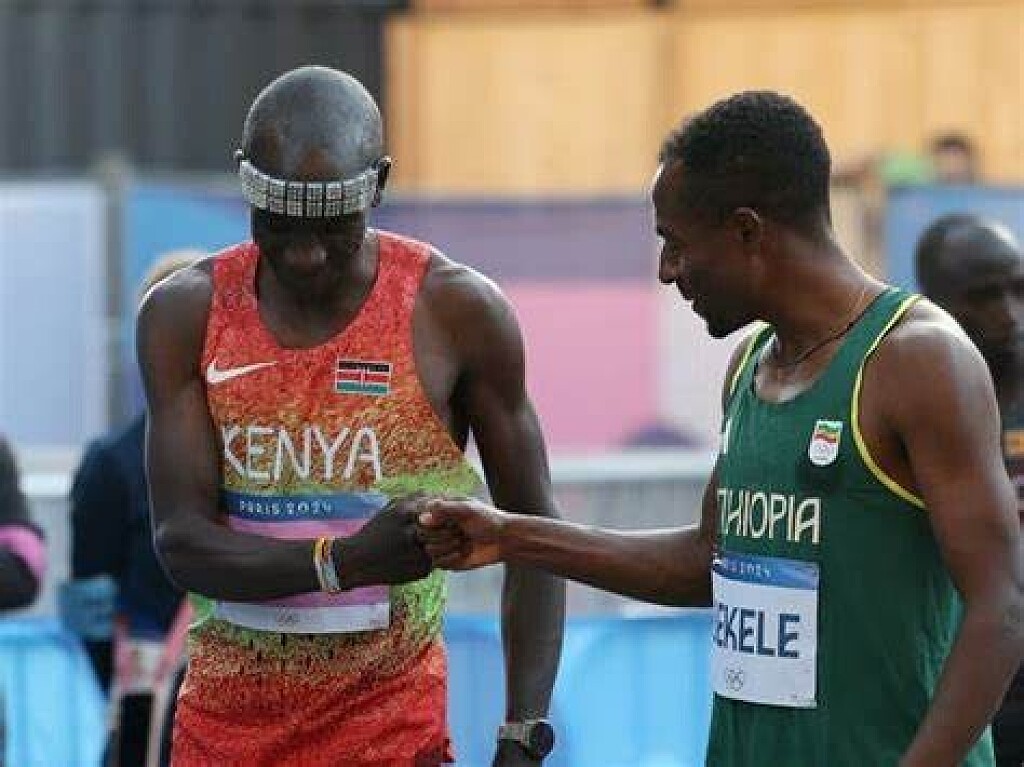Running News Daily
Top Ten Stories of the Week
8/17/2024
These are the top ten stories based on views over the last week.
This Off-the-Court Oasis Gives These Olympic Athletes an Edge
Just when we thought the Olympic Village was cool, we took a five-minute walk from Stade de France to this oasis for Nike athletes to refuel, relax, and recover
Leo Neugebauer had a grueling schedule at the Paris Olympic Games. As a decathlete, the German multisport athlete , who was a three-time NCAA champion for the University of Texas, competed in the 100-meter dash, long jump, shot put, high jump, 400 meters, 110-meter hurdles, discus throw, pole vault, javelin throw, and 1500 meters over the course of just two days.
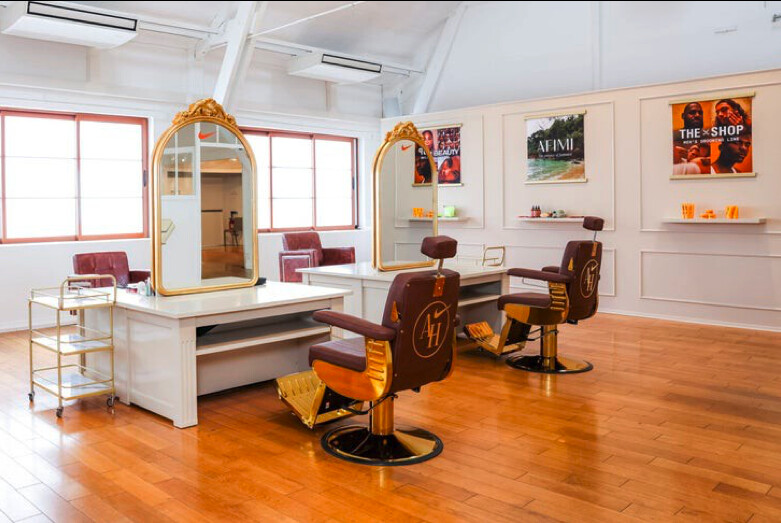
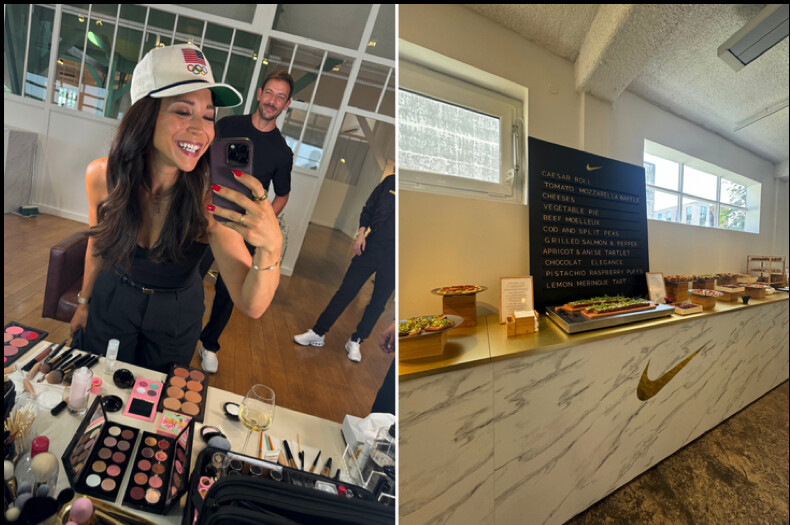
But as a Nike athlete, Neugebauer also had a leg up on the competition.
Just a five-minute drive from Stade de France you’ll find the Nike Athlete House. Walk in, past two towering orange statues of Lebron James and Shelly-Ann Fraser-Pryce, and guests are instantly transported into a luxurious, two-floor oasis, complete with swoosh-laden rugs and plush furniture, bright lighting and calm tones reminiscent of your favorite spa, and everything an athlete could need to look and perform their best.
At least that’s the goal, says Tanya Hvizdak, Vice President of Global Women’s Sports Marketing at Nike. Complete with everything from specialty stations for barber, nail, makeup, and tooth gem appointments, to physical therapy and recovery services, plus spaces to unwind with family, and even a nursery—the hospitality locale is on a whole new level from any other Olympic activation the brand has done before.
“What we provide has certainly evolved from this mode of sponsorship to partnership,” Hvizdak says, noting that some athletes stop by the house more than once a day. “We’re listening to the voice of the athlete around what their expectations are and what their needs are.”
“It’s kind of a sanctuary,” adds Tobie Hatfield, Senior Director of Athlete Innovation at Nike. “We want this to be the place where athletes come to get ready for their competition.”
Just Doing It
Nike’s not the only brand to go to great lengths to make their athletes comfortable. Varying in size and offerings, other major players including Puma, Asics, On, New Balance, and Oakley have full-service locations dedicated to their athletes, plus their entourages. Where Nike comes out on top, though, is their proximity to the competition.
Set in the Parisian suburb of Saint-Denis, about a mile and a half north of city limits and five miles north of the Louvre, Stade de France sits quite a ways away from much of the Olympic action at the heart of the city. The Athlete Village is relatively close by, but still a 15- to 20-minute bus ride—assuming bus drivers don’t take any wrong turns, as they’ve been reported to do as athletes stand for up to an hour on cramped buses during the Games.
Relaxing pre-race and recovering immediately after are critical to success on the world stage, something Nike officials readily understand.
“The planning of this space began over three years ago when we were looking at the city, having an understanding of where things like the Athlete Village and track and field were going to be taking place,” says Hvizdak. “The number one priority for us was being in a location that was going to be in close proximity to the athletes.”
The Royal Treatment
While I wasn’t able to time my trip to the house so that I could sit in the Nike x Hyperice boots and vests next to medalists like Jordan Chiles, Sha’Carri Richardson, or Fred Kerley—all whom shared their trips to the space on social media—it’s certainly getting a lot of foot traffic.
The space also offers catering for breakfast and lunch. With reports that the food and conditions in the Athlete Village leave something to be desired, Nike’s culinary staff took it upon themselves to ensure that they had the food game on lock, including tantalizing yet nutritious options like (on the day I visited) grilled salmon and pepper tartlets, vegetable pie, beef moelleux, and noodle salad.
“Something that was requested shortly after we opened was to-go boxes of food,” says Hvizdak, who adds that the meals are definitely a highlight for the folks who come through. “So, we’re now offering takeaway options. Plus, we even changed the hours to stay open later per the athletes’ request.”
And of course—in the true extravagant nature of the space, what’s a good time without a parting gift? Athletes have the option of shopping through the Jacquemus x Nike collection, other new offerings, and to design a hoodie using a new proprietary AI tool on digital tablets—set to potentially launch in-store at a later date.
Neugebauer walked into the Nike House before his competition just to sniff it out. But he was sold after snagging some of the recovery tools to use during his downtime before his daunting 10-event competition.
“I took the Hyperice boots to my hotel room and used them before, during, and after my decathlon,” he says. “The second time I went through the house, I got to do all the fun stuff like customize my own Nike hoodie, it was amazing. And when I heard they had a barber, I was like oh my god, I got a fresh cut., I looked good. I think that’s important. I looked good, and I did good.”
The royal treatment apparently paid off. On August 3, Neugebauer earned the silver medal.
(08/11/24) Views: 150Outside Online
Billy Mills really enjoyed every minute of the Olympics in Paris
The Games are over! What a memorable experience. The local people were so great! lots of smiles and lots of help! We ran into many friends from the USA and around the world. Thank you all for taking the trip with us! Enjoyed all your comments and reading about your experiences at Olympic Games! Love you all! Billy Mills
About Billy Mills: (born June 30, 1938), also known by his Oglala Lakota name Tamakhóčhe Theȟíla, is an American Oglala Lakota former track and field athlete who won a gold medal in the 10,000 metre run (6.2 mi) at the 1964 Tokyo Olympics.
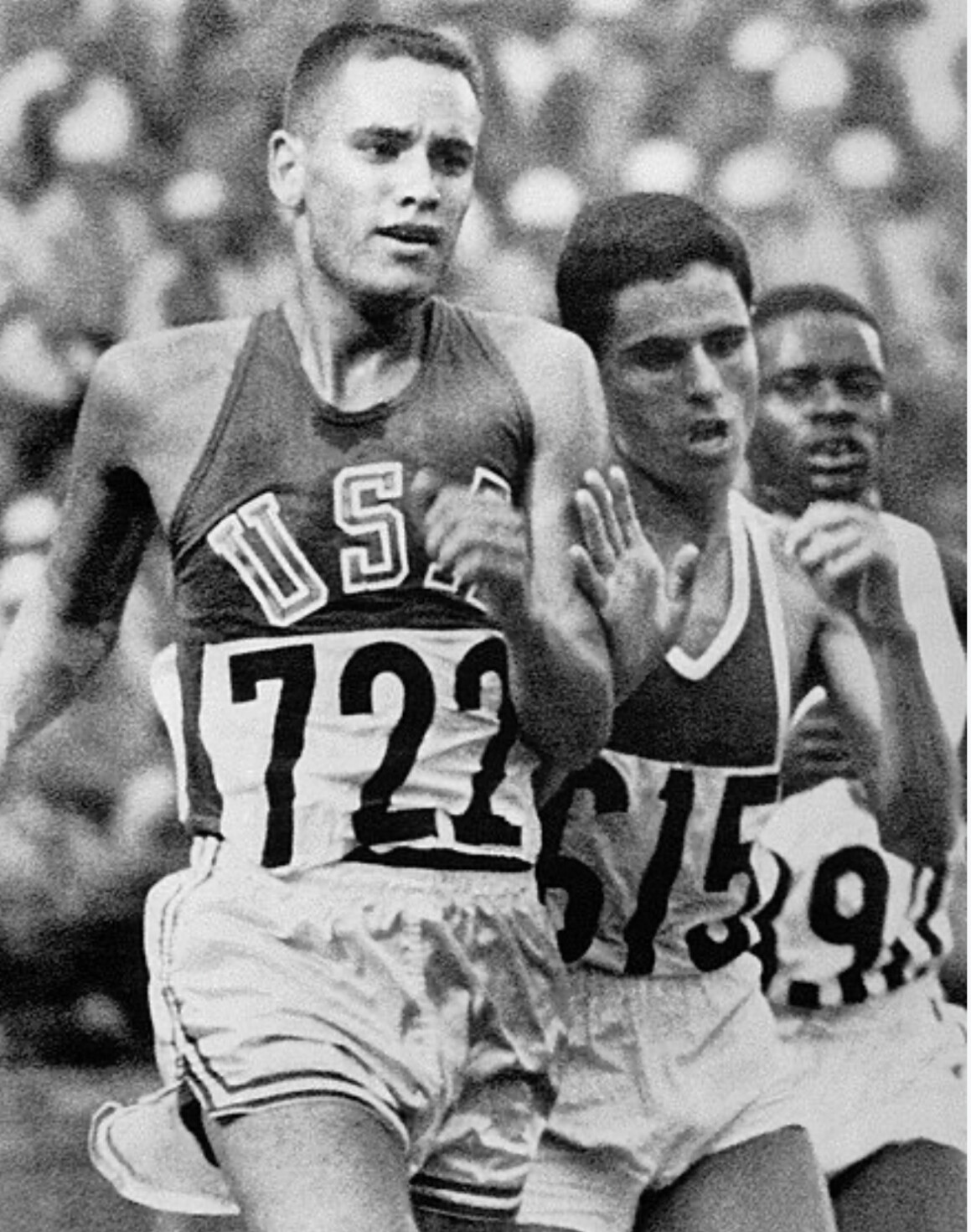
His 1964 victory is considered one of the greatest Olympic upsets because he was a virtual unknown going into the event.
He was the first non-European to win the Olympic event and remains the only winner from the Americas.[3] A United States Marine, Mills is a member of the Oglala Sioux Tribe.
(08/12/24) Views: 141
Carl Lewis sounds off on 'unacceptable' U.S. men's 4×100 relay flub: 'Time to blow up the system'
After the U.S. men’s 4×100 relay team botched a baton handoff that led to their disqualification in Friday’s Olympic final, track and field legend Carl Lewis labeled the performance “completely unacceptable” as he called for an overhaul of the USA Track and Field program.
“It is time to blow up the system,” Lewis, a nine-time Olympic gold medalist, posted on X on Friday. “This continues to be completely unacceptable. It is clear that EVERYONE at [USA Track and Field] is more concerned with relationships than winning. No athlete should step on the track and run another relay until this program is changed from top to bottom.”U.S. athletes Christian Coleman and teammate Kenny Bednarek collided during the first exchange, which was deemed to have taken place outside the exchange zone and led to the team’s disqualification. The disastrous handoff put the Americans significantly behind, and the team — which also included Kyree King and Fred Kerley — finished seventh before being DQ’d.Canada won gold while South Africa took silver and Great Britain claimed bronze.
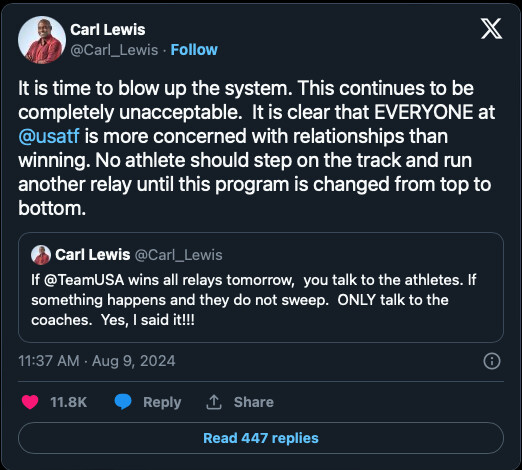

The United States, meanwhile, failed to earn a medal in the event for the fifth consecutive Olympics despite entering as the presumed favorites. They were the fastest qualifiers and the U.S. took gold in its last major international meet at the 2023 World Championships.
“Obviously, it’s a little disappointing, especially for America,” Coleman said after the race. “We wanted to bring it home. We knew we had the speed to do it.The United States has not won a medal in the men’s 4×100 relay since 2004, when Shawn Crawford, Justin Gatlin, Coby Miller and Maurice Greene won silver at the Athens Olympics. Team USA’s last Olympic gold in the event was in 2000 with Jon Drummond, Bernard Williams, Brian Lewis and Greene.
Lewis posted on X ahead of the race suggesting the coaches should be held responsible if the U.S. failed to medal.
“If [Team USA] wins all relays tomorrow, you talk to the athletes,” he wrote on X on Thursday. “If something happens and they do not sweep. ONLY talk to the coaches. Yes, I said it!!!”
The U.S. women, with Sha’Carri Richardson as the anchor, won gold in the 4×100 relay on Friday at Stade de France. It was the United States women’s 12th Olympic gold medal in the event.
(08/11/24) Views: 138Eliud Kipchoge Drops Out of the 2024 Olympic Marathon
It may be the two-time gold medalist’s final Olympic Games.
In what may be his final Olympic Games, Eliud Kipchoge of Kenya dropped out of Saturday’s men’s marathon around the 31K mark. Today’s race was Kipchoge’s chance to be the first man to win the Olympic marathon three times in a career. His other Olympic marathon wins came in the Rio Olympics in 2016 and Tokyo in 2021.
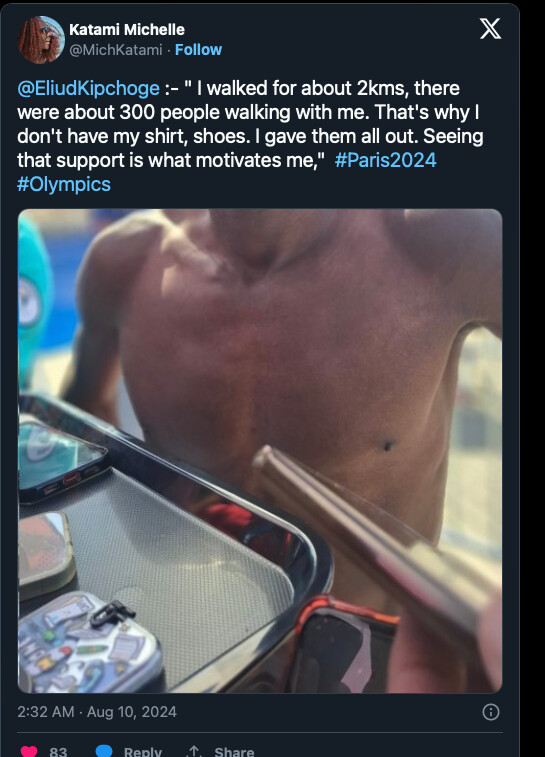
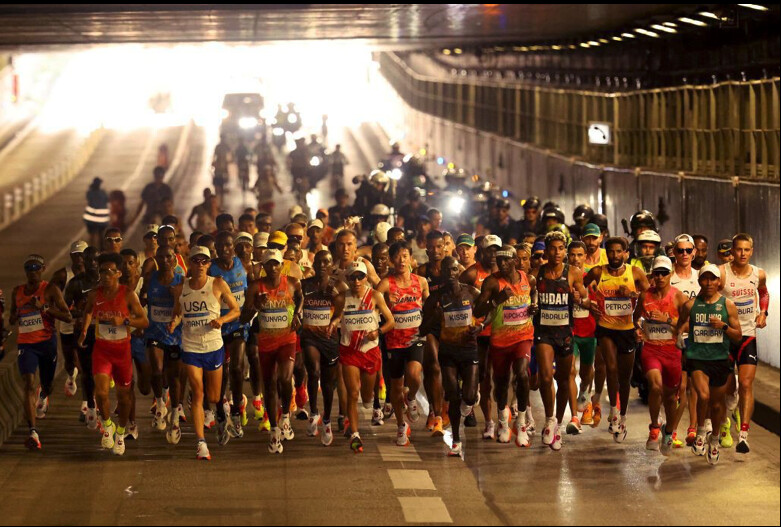
“I will be the happiest on earth to win an Olympic medal for the third time, back-to-back-to-back,” Kipchoge said about the race prior to the Games on Olympics.com. “It’s about making history, it’s about inspiring a generation.”
Wearing a cooling headband for what was going to end up being a warm day, the race started relatively cool in the lower 60s on a clear day in Paris. Kipchoge hung with the lead pack for the first 15K until the notoriously challenging Paris Olympic Marathon hills started claiming victims.
After reaching Versailles and turning back to head toward Paris, Kipchoge was more than a minute off the lead pack, not within the top 50 runners. He split 25K to the 30K mark—the segment of the course from Chaville to Meudon with the steepest uphill and downhill—a little over 21 minutes, putting him more than 8 minutes off the lead pack. He was out of contention but gutting it out toward the finish line, buoyed by the Olympic crowd.
Journalist Michelle Katami found Kipchoge after the race, where he described his final few kilometers of the race. “I walked for about 2 kilometers, there were about 300 people walking with me. That’s why I don’t have my shirt, shoes. I gave them all out. Seeing that support is what motivates me.”
Win or not, Kipchoge’s extensive career has earned him G.O.A.T. status in the running world. He’s eclipsed the world record mark twice—both times at the Berlin Marathon—and became the only man ever to run under 2 hours in a non-record eligible marathon attempt in Vienna back in 2019.
For a period, Kipchoge was untouchable at the distance. He won 10 marathons in a row from 2014 to 2019. He finally showed himself as human at the 2020 London Marathon (a race he’s still won four times), when he finished a surprising 8th. He bounced back by winning the marathon in the 2021 Tokyo Olympics, then winning both the Tokyo Marathon and Berlin Marathon in 2022.
Some recent marathons have been a step back for Kipchoge. He was 6th overall in his first Boston Marathon in 2023 but returned to form with a Berlin win later that year. Earlier this year Kipchoge placed 10th in the Tokyo Marathon.
He’s openly spoken about the strain he has taken after the tragic passing of the new marathon world record holder Kelvin Kiptum in a car crash in February 2024. He told the BBC that he was was subjected to online abuse wrongly linking him to Kiptum’s death.
“I was shocked that people (on) social media platforms are saying, ‘Eliud is involved in the death of this boy,’ That was my worst news ever in my life. I received a lot of bad things; that they will burn the (training) camp, they will burn my investments in town, they will burn my house, they will burn my family. It did not happen but that is how the world is. What happened has (made) me not trust anybody. Even my own shadow, I will not trust."
And on the track, he has two other Olympic medals, both in the 5,000 meters, with silver in 2008, and bronze in 2004.
(08/10/24) Views: 135Runner’s World
SIFAN HASSAN WINS WOMEN’S MARATHON IN NEW OLYMPIC RECORD
Sifan Hassan has raced to victory in a new Olympic record in the Paris 2024 women’s marathon on Sunday 11 August.
The Dutch athlete braved the undulating course that wound through some of the most iconic sights in Paris, finishing the race in 2:22:55.
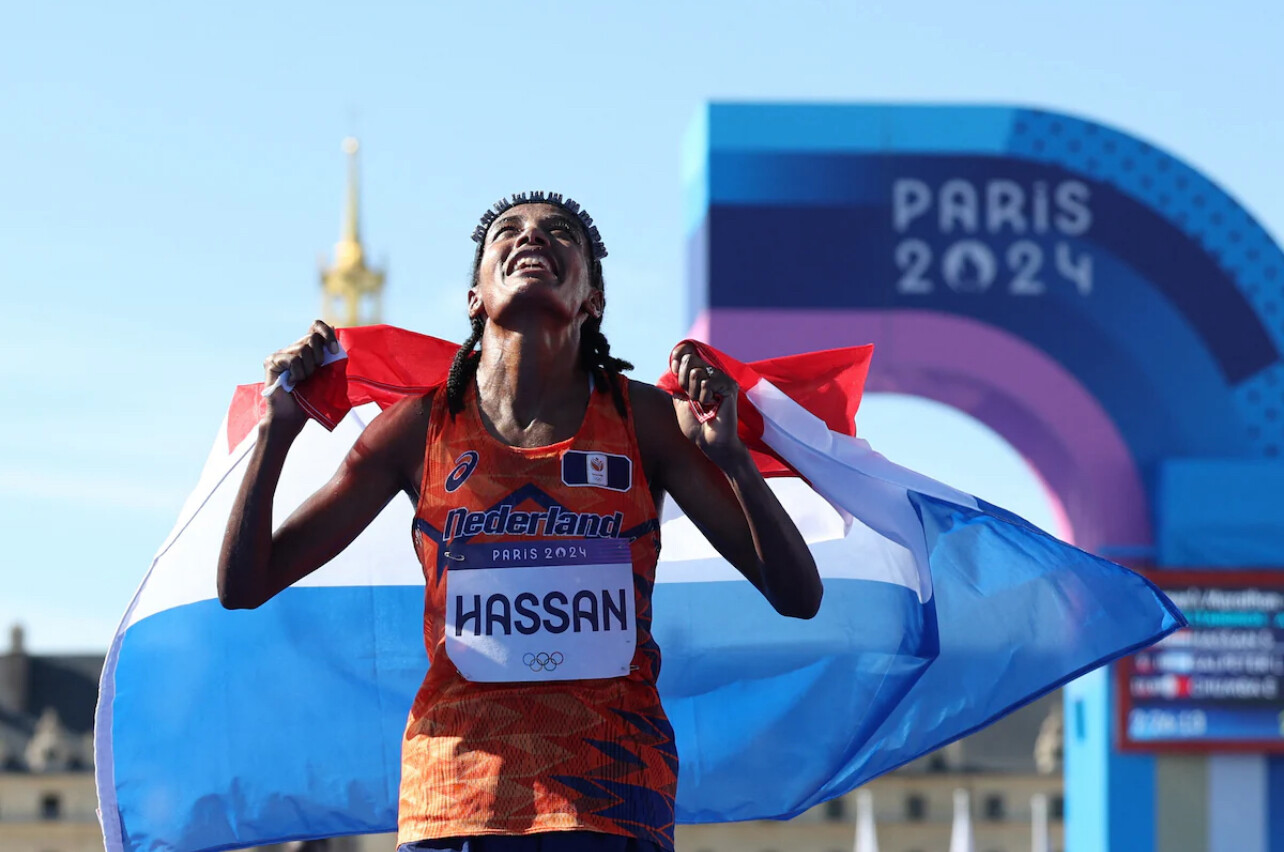
Hassan raised eyebrows when she announced she would complete the 5000m/10,000m/marathon treble at these Games. However, her brilliant gold in today's marathon, added to the bronze medals she won over the shorter distances, is proof that the 31-year-old is able to overcome the type of sporting challenges others would deem impossible. She placed third in the 10000m as well.
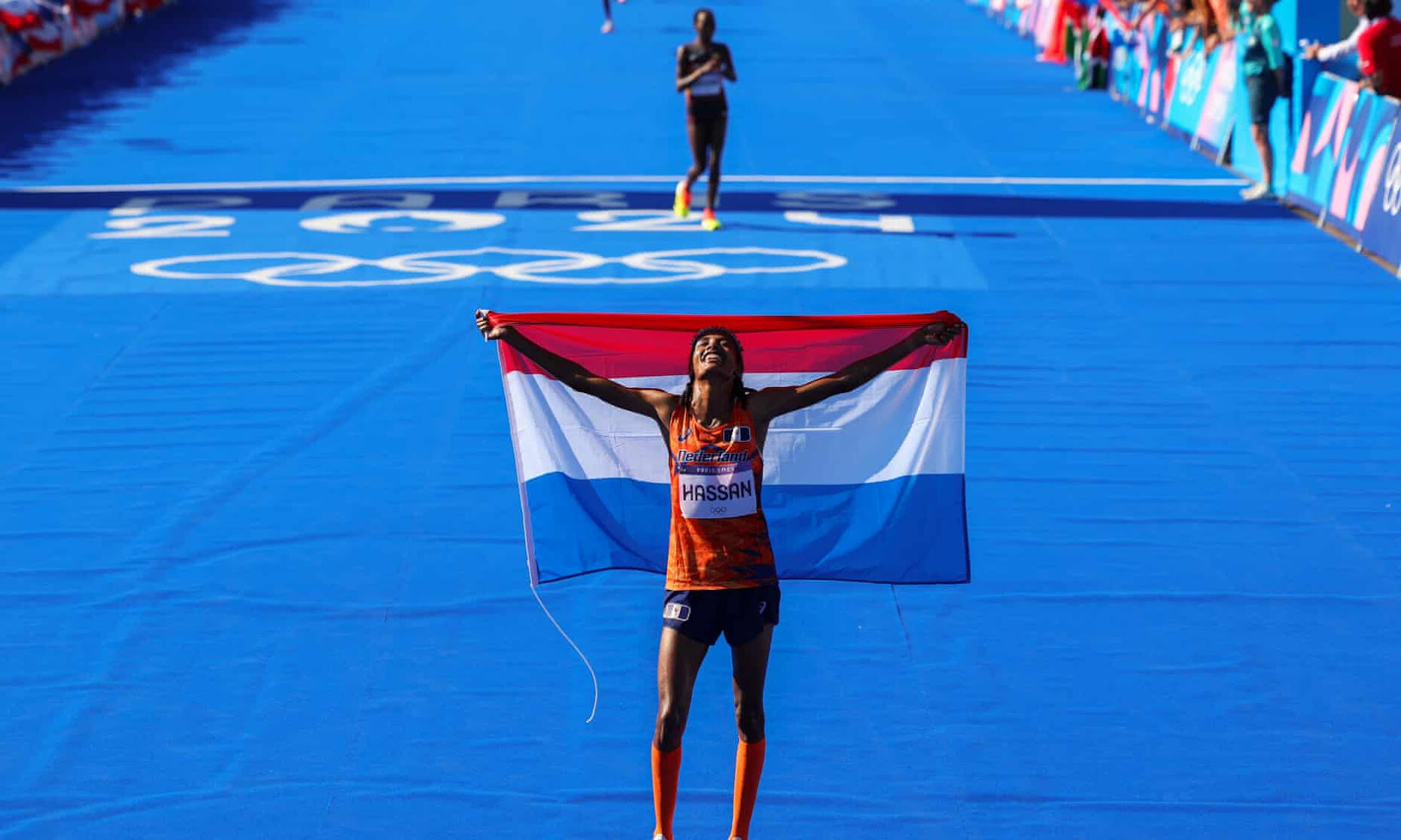
Much has also been made about the unique challenges posed by the Paris 2024 marathon course with its steep, gruelling inclines followed by fast downhill sections.
But in front of a cheering crowd that lined the streets of France’s capital, Hassan proved herself strongest, fastest and more determined over the 42.195km race.
Tigst Assefa of Ethiopia won silver (2:22:58) with Kenya’s Hellen Obiri claiming bronze (2:23:10).
(08/11/24) Views: 130This 31-Year-Old Runner Is a Mom and an Olympian
Buoyed by her faith, motherhood, and family, Marisa Howard never relinquished her dream of becoming an Olympian
As a young girl, Marisa Howard dreamed about becoming an Olympian one day. But her focus was on another Olympic sport, gymnastics. She had no idea what the 3,000-meter steeplechase even was.
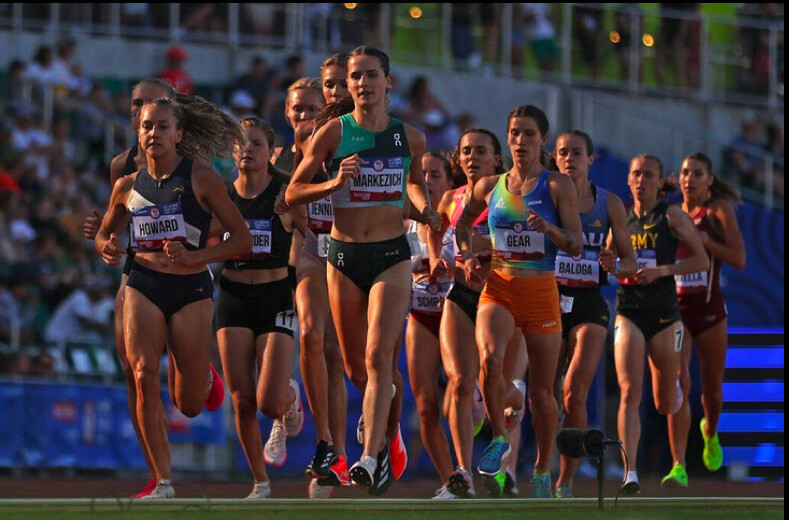
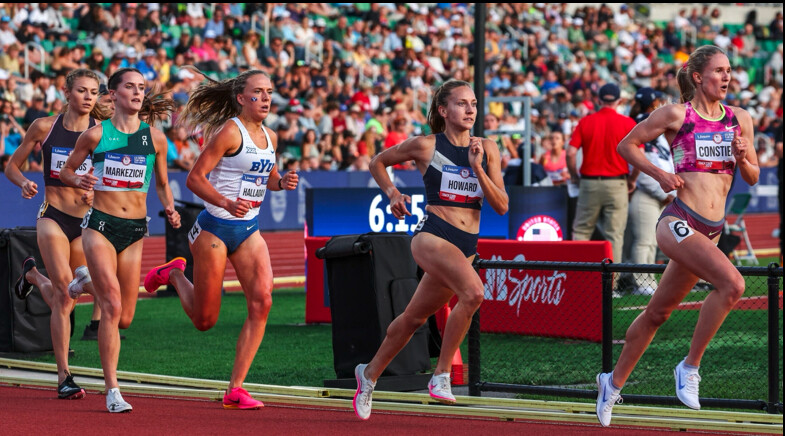
She also had no idea she’d be a mom when the dream actually came true.
Over the last two decades, Marisa, 31, has gone through numerous highs and lows, near-misses, injuries, a lack of sponsor support, and joyful life changes—most notably giving birth to son, Kai, in 2022. But the steeplechaser from Boise, Idaho, never let go of the dream. Relying on her faith, a strong family support system, and the frugal but full life she shares with her husband, Jeff, the dream came true on June 27 with a third-place finish in the steeplechase at the U.S. Olympic Trials in Eugene, Oregon.
After chipping away at her craft for three Olympic cycles, Marisa ran the race of her life—finishing with a 15-second personal best of 9 minutes and 7.14 seconds—to earn a spot on Team USA.
Her dream of running for Team USA in the Olympics officially materialized on August 4 when she lined up to race in the prelims of the 3,000-meter steeplechase in Paris. She ran with the lead pack in her heat as long as she could, but with two laps to go she slid to seventh and finished in that position in 9:24.78, missing the chance to advance to the August 6 final by two places and about seven seconds.
“I think it just becomes a lot more real when you see people that have been kind of knocking on the door for years and finally break through. It’s like, ‘Wow, we’re human and we can do it.’ Dreams do come true,” Marisa said. “I was six or seven or eight years old when this Olympic dream was born, and I plan on competing until he’s that age, hopefully, to show him what it’s like to do hard things and chase your dreams. I think it’ll be cool in 10 years when I show Kai these videos and be able to tell him, “Look at what Mommy did when you were two.”
In between making the team in late June and arriving in Paris in late July, Marisa’s life returned to normal—as if being a mom with a 2-year-old is ever normal, or at least consistent, on a day-to-day basis. That month included rough bouts of stomach flu for her and her son, the continued day-to-day management of Kai with Jeff, juggling workouts with childcare help from family and friends, reestablishing normal sleep patterns for everyone, and of course, finalizing travel plans to get the family to Paris.
It all came with a humbling reminder of the perspective that has been the bedrock of Marisa’s postpartum revival as an athlete.
“The day after I qualified, we were driving back home to Idaho and we were all tired. Kai was exhausted and screaming in the car, and I told my husband, ‘He doesn’t care that I’m an Olympian, he just wants food and sleep and, really, I’m just mom,’” she said. “It’s humbling—there’s nothing more humbling than taking care of your sick baby—and I think as a parent, we’re humbled every single day, and we come up short sometimes despite doing the best we can, but I’m thankful that there’s grace and forgiveness. I think it makes those high moments so much sweeter.”
Marisa is part of a new wave of elite runners that aren’t putting their family plans on hold due to their career, and one of several moms who competed at the U.S. Olympic Trials. Stephanie Bruce raced the 10,000 meters just nine months postpartum after giving birth to her daughter, Sophia, in September 2023, while Kate Grace ran strong preliminary and semifinal 800-meter races to advance to the final of that event just 15 months after giving birth to son, River, in March 2023.
Elle St. Pierre gave birth to her son, Ivan, at about the same time, and returned to racing six months postpartum, finishing seventh in a speedy 4:24 at the Fifth Avenue Mile in New York City. That was just the beginning for St. Pierre, who broke the American indoor record in the mile (4:16.41) in January then won the gold medal in the 3,000 meters at the indoor world championships in Glasgow in March. At the Olympic Trials, Pierre won the 5,000 meters and placed third in the 1500, qualifying for Team USA in both events, even though she declined the Olympic entry for the 5,000.
After Howard gave birth to Kai in late May 2022, she began doing pelvic floor therapy along with general strength training and some easy jogging. By the time she started running in earnest that fall, she was surprised at how quickly her aerobic fitness came back to her.
“What’s really surprised me is that I’m able to run paces that I never hit before pregnancy with the same amount or less effort,” she says. “My aerobic engine has just gotten so strong. You do see women come back stronger, but it’s a wide range of how long it takes them to come back. ”
When she returned to the track, she was aiming for a top-three finish at the 2023 U.S. championships to qualify for the world championships in Budapest. She made it to the final and was in third place with two laps to go, but just didn’t have the closing speed. However, she did get the Olympic Trials standard by clocking a near-PR of 9:22.73, demonstrating she was just as fast as her pre-pregnancy self despite limited training and two years away from racing.
By late 2023 and early 2024, Pat McCurry, Marisa’s coach since college, was able to add more volume and intensity to her training, setting up what he thought would be her best season yet. And while Marisa admittedly didn’t race as well as hoped in her races before the Olympic Trials, McCurry knew she was capable of great things.
“She was on a different level once we got back to that base fitness post-pregnancy, and I think that’s what’s paid off in massive fitness dividends,” said McCurry, who has coached Marisa on Idaho Afoot training group since 2015. “The racing didn’t look amazing from the outside. The training was spectacular. We were doing things in training since January that we’ve never done before—just the level of intensity and volume we were sustaining was stellar.”
Marisa picked up running at Pasco High School in Washington, and carried on with the dream at Boise State University. There, she also met Jeff Howard, a Boise State runner who held the school record in the 10,000 meters. But more important than their common athletic passion, they shared the same Christian values that were the foundation of her life. They married in the summer of 2013 just after he graduated. He eventually took a job as a high school teacher at a nearby school, while she blossomed into a three-time NCAA Division I All-American for the Broncos, notching a runner-up finish at the 2014 NCAA championships and fourth-place finish the following year as a senior.
After she graduated, she picked up a small sponsorship deal with women’s apparel brand Oiselle and set her sights on the 2016 U.S. Olympic Trials . She got injured and missed the trials that year. But Howard and her husband bought a house in Boise and started their family life in earnest. That added stability, along with the guidance of McCurry, who she began working with in 2016, allowed her to dig deeper into training and continue to make progress in the steeplechase, lowering her personal best to 9:30.92 at a race in Lapinlahti, Finland.
The Oiselle sponsorship evaporated after about three years but that didn’t seem to matter. She and Jeff were living frugally and loving life, especially because, by then, most of their family had moved to Boise. Marisa had two aunts who had lived in the area before she went to college, and Jeff’s parents moved to town shortly after they were married. Marisa’s parents, and later her best friend, Marianne Green, also picked up their roots and relocated to town.
The ensuing years brought a variety of highs and lows—several near-miss fifth place finishes at U.S. championships, a silver medal at the 2019 Pan American Games, a few injuries that delayed her progress, a breakthrough eight-second PR in the semifinals of the 2020 Olympic Trials, and, of course, welcoming Kai into the world in 2022.
What makes Marisa’s situation especially challenging is that she’s run competitively without a traditional sponsor since 2017, more or less collectively bootstrapping the dream on her husband’s high school teacher’s salary and working part-time as a schol nurse and as a coach. (She will officially join the Boise State staff as an assistant coach after the Olympics.) She often stays with friends when she travels to races and says she’s grateful to the meet directors who have flown her out to race, put her up in hotels, and also paid her to pace races.
She also earned USATF Foundation grants and in 2022 was the recipient of a $10,000 grant to offset child care expenses from a program sprinting legend Allyson Felix organized through Athleta’s Power of She Fund and the Women’s Sports Foundation. Marisa competed at the 2024 Olympic Trials as part of the Tracksmith Amateur Support Program, which provides a small quarterly stipend, running apparel, and shoes to about 40 athletes in all disciplines of track and field.
“We’ve found ways to make it work. We drive used cars, and we refinanced in 2020, so thankfully our mortgage is very low,” she says. “So really a lot of my expenses are just shoes, a little bit of travel, coaching fees, gym fees, and things like that. But it does add up. But thankfully we live well within our means and are able to do it. As I’ve said before, the Lord always provides.”
But even with that support and her continued progress, Marisa entered the Olympic Trials as a dark horse contender to make Team USA. And that’s despite knowing that Emma Coburn and Courtney Frerichs, the top stars of the event for the past 10 years, were sidelined with injuries. She hadn’t run great in her races leading up to the trials, and her confidence was waning, McCurry says.
“I felt like not having a full contract [from a shoe sponsorship] had kind of eroded away at some of her confidence, and she was starting to have a little bit of imposter syndrome at races,” says McCurry. “We just had a really firm talk where I was like, damn it, you’re better than this,” he says. “Not we, not the training, you, Marissa Howard, are better than this.”
That pep talk was just what she needed. It helped remind Marisa about her bigger purpose, just as much as packing diapers, toys, and pajamas for Kai did before she and Jeff made the eight-hour drive to Eugene for the Olympic Trials.
In her semi-final heat at the trials on June 24, Marisa ran aggressively and finished second behind Gabbi Jennings in 9:26.38. After the race, she said she was looking forward to the final, but, for the moment, was most interested in making sure Kai got to bed on time.
Running with purpose and caring for her son emboldened her for the final, where she ran with conviction among the top five before moving into the lead briefly with a lap to go. In what was a thrilling final lap, Val Constien retook the lead and sprinted to victory down the homestretch in an Olympic Trials-record 9:03.22, followed by a surging Courtney Wayment (9:06.50) and a determined Marisa (9:07.14) as the top nine finishers all set new personal bests.
“My husband and I talk about competitive greatness: You want to rise to the occasion when everyone else is at their best. So it’s like, gosh, I was able to do it! I think a lot of it for me has always been about having my priorities in place. I’m a Christian first, and then a wife, and then a mom, and then a runner. And I think if I keep those in that line, that’s where I see success,” Marisa says.
“I’ve sat next to gold medalists and other high-level athletes in chapels before U.S. championship races and they’ve told me, ‘I’ve won that gold medal and it doesn’t fill that void in my heart.’ And just knowing that a medal or success isn’t going to change you, ultimately, you have to be secure in who you are. So just remembering where my priorities lie helps to kind of keep me grounded.”
(08/11/24) Views: 128Kenya’s Beatrice Chebet wins 10,000m gold for historic distance double
Chebet is the first Kenyan athlete to win two Olympic gold medals in a single Games.
After winning the women’s 5,000m gold earlier in the week, Kenya’s Beatrice Chebet made history on Friday in the women’s 10,000m, taking gold to compete the Olympic distance double. Italy’s Nadia Battocletti set a national record to win silver in 30:43.35, and fan favourite Sifan Hassan of the Netherlands won her bronze of the Games in 30:44.12.
It’s the first time a Kenyan athlete has won two gold medals on the track in a single Olympics, and the first time a Kenyan has won gold in the women’s 10,000m since its addition to the Olympic program in Seoul 1988.
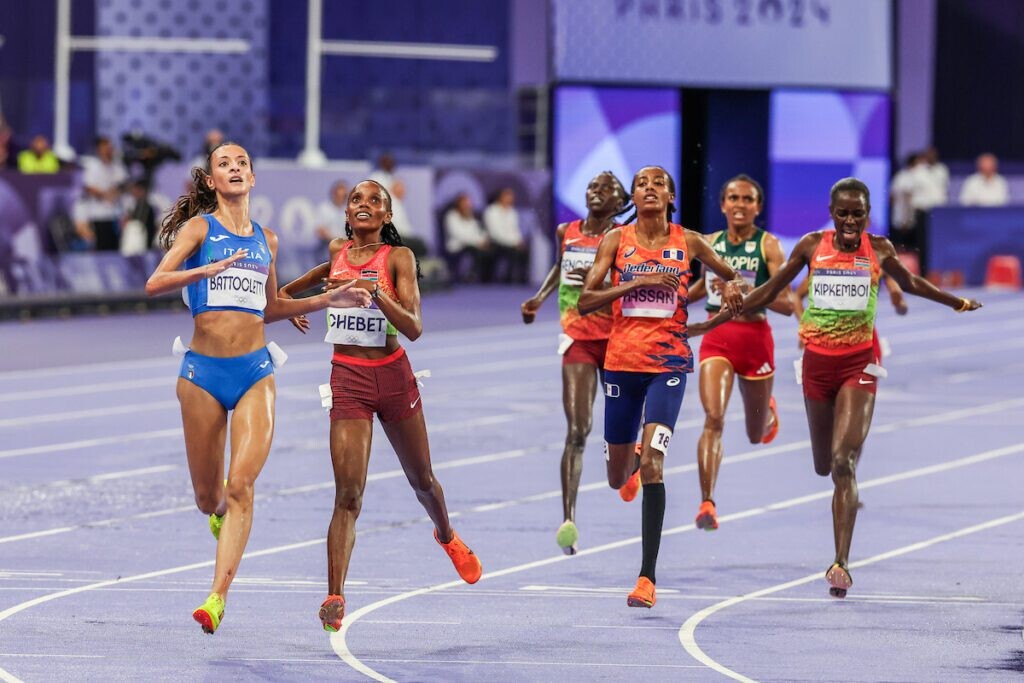
Chebet, the current world record holder in the 10,000m (28:54.15, set earlier this year) positioned herself near the front of the pack during the first few laps and remained there throughout, with Battocletti in the middle and Hassan running near the back, where she stayed until the final two laps. Chebet is also the 2024 world cross-country champion, a title she also won in 2023.
The group stayed tightly bunched through most of the race, with around a dozen women running closely together into the final laps. Chebet began to pick up the pace at the bell, followed by Battocletti, who finished fourth in the 5,000m final earlier in the week. Battocletti ran a tactically smart race, putting herself in an ideal position to strike in the final stretch.
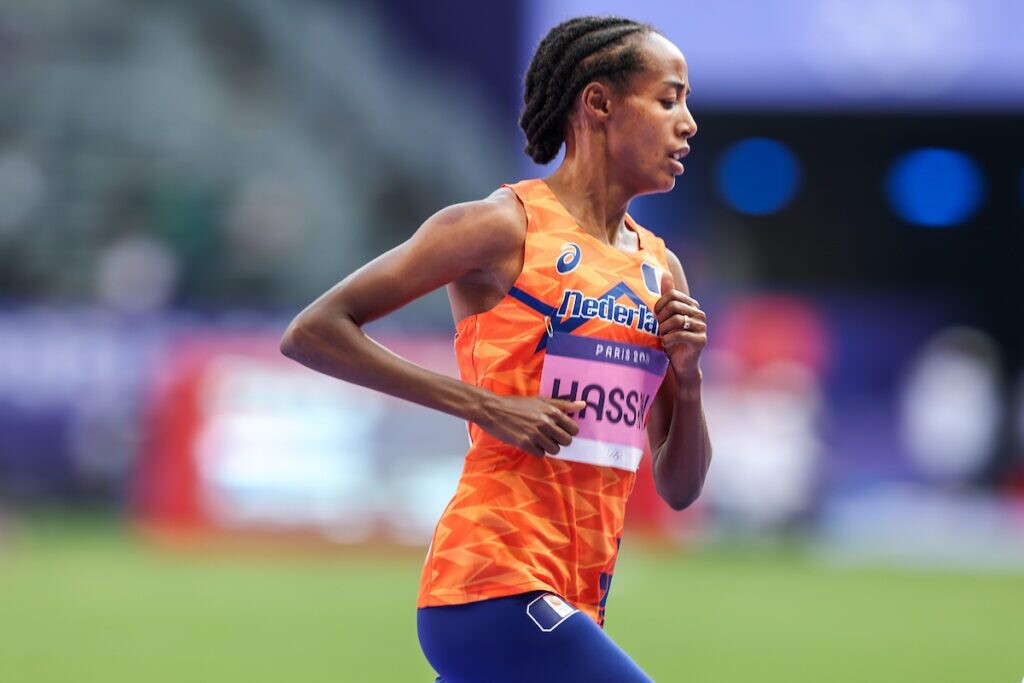
With 200m to go, Hassan, the defending Olympic champion, who had only begun moving up from the rear in the final two laps of the race, began a push toward the front of the lead group, eventually clinching third place and her second bronze medal of the Paris Olympics. (She won bronze in the 5,000 also.)
Hassan is attempting an ambitious triple, competing in the 5,000m, 10,000m and the marathon at these Olympics. She will have one day of rest on Saturday before tackling the women’s marathon on Sunday, the final day of the Games.
(08/10/24) Views: 122Keeley Milne
Sifan Hassan is simply one of the best female distance runners ever
Sifan Hassan defies conventional logic or reasoning. It shouldn’t be possible to do many of the things she does. However time and again she sets herself impossible challenges and goes about achieving them. At this Olympics, she started by securing bronze medals in the 5000m and 10,000m in perhaps the most efficient way possible, staying at the back of the pack, running her own race and kicking through the field over the last lap to secure a bronze medal in each.
Then she took on the ultimate racing challenge, the Olympic marathon, on one of the most challenging courses ever seen. When she was with the leaders with two kilometers left to go, there was a sense of inevitability, and of destiny, that awaited her in front of the appropriately golden dome of Les Invalides on the final morning of the Paris Olympics.
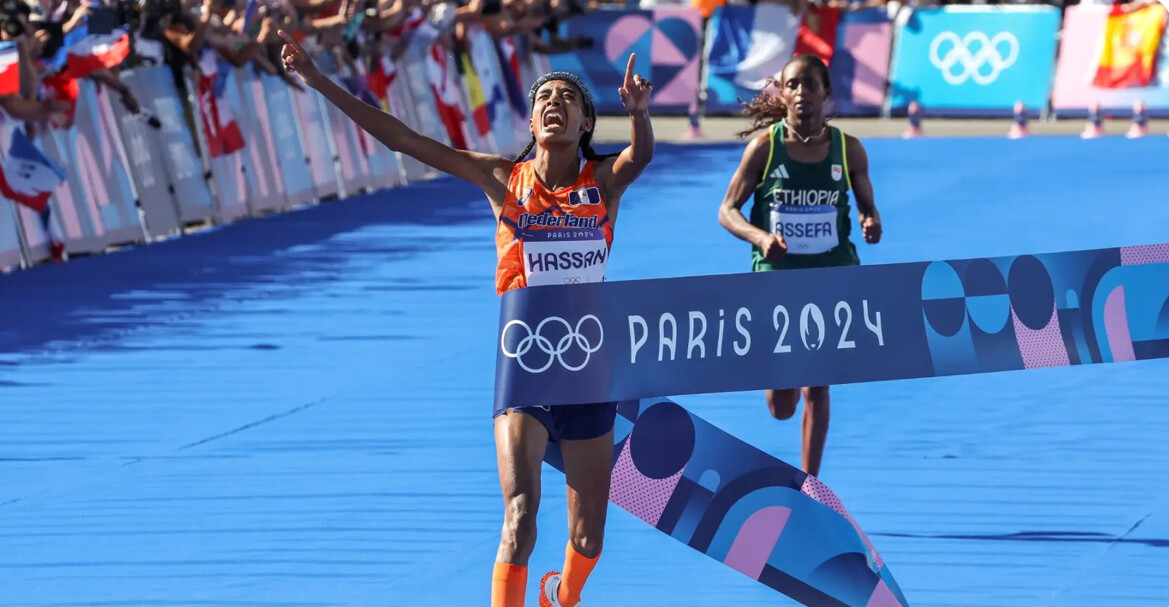
As she crossed the finish line to secure the third Olympic gold of her career, she became the first female athlete to win individual Olympic golds across 5000m, 10,000m and the marathon.
At two successive games, she has medalled in not one, not two, but three different individual events, achieving this whilst battling a schedule that would make it near impossible for an athlete to give their best across all three events. The triple she attempted on this occasion has only been attempted (at least successfully) by one athlete in history: the Czech athlete Emil Zátopek at the 1952 Olympics, in which he won all three events.
(08/13/24) Views: 119Citius
FAITH KIPYEGON CLAIMS THIRD WOMEN’S 1500M TITLE IN OLYMPIC RECORD TIME
Faith Kipyegon blazed to victory in the Olympic Games Paris 2024 women’s 1500m, finishing in 3:51.29 to claim a brilliant gold and Olympic record on the final night of track action at the Stade de France. She is the first athlete - male or female - to win gold in the event at three different Games.
“It’s a big, big achievement,” said an elated Kipyegon after her victory. “I was really looking forward to defending my title (from the last two Olympic Games), and I had a dream. It’s amazing to me, I completed it. I’m so, so happy.
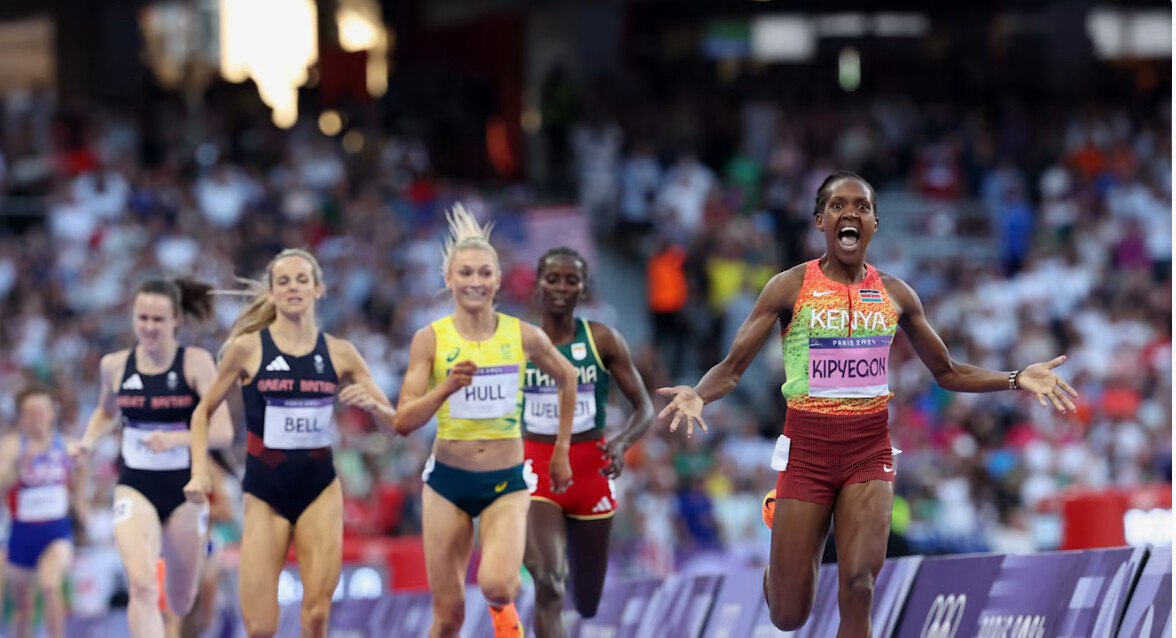
“This is history. I managed to make history. I’ve done it. This is an amazing honour, to win the gold medal in the 1500. It was my key target.”
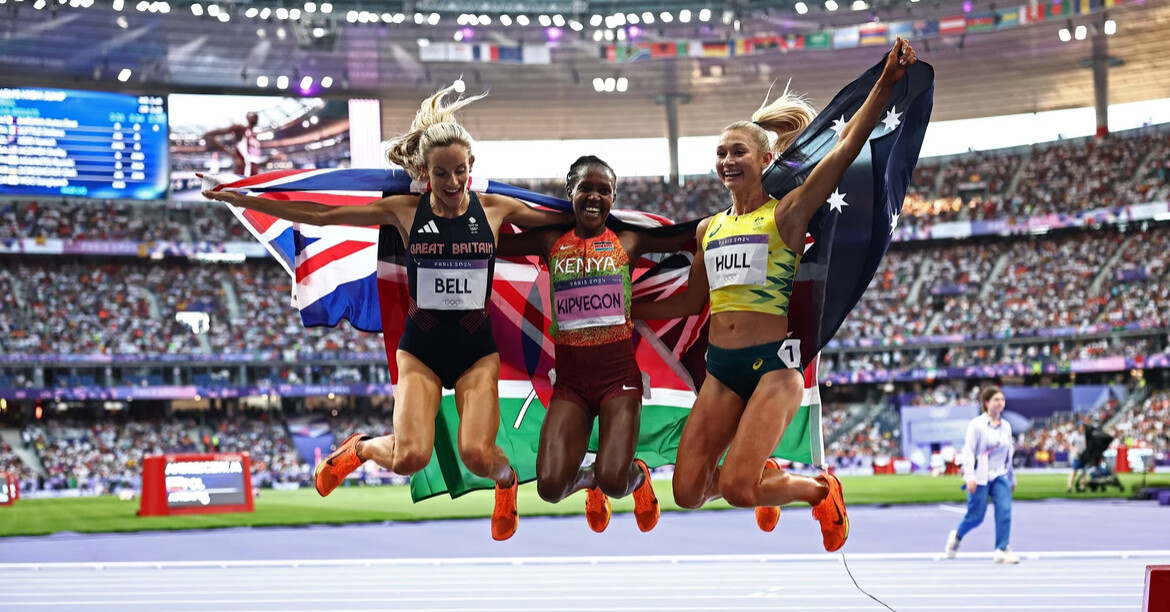
Jessica Hull of Australia won silver in 3:52.56, with Great Britain’s Georgia Bell running the race of her life to take bronze in a national record time of 3:52.61.
“It’s all a bit of a blur,” said bronze medallist Bell. “I think it’ll hit me a little bit later. On the start (line) I really had the feeling that if I just stuck in there I’d be able to do something special, so I’m over the moon to get a medal.”
Kipyegon is the world record holder in the 1500m, having posted a time of 3:49.04 in Paris earlier this year. She came into the race having already won Olympic silver in the 5,000m behind compatriot Beatrice Chebet.
However, over a distance she had made her own, the Kenyan sprinted to the finish line to take her third Olympic title and break the Olympic record she herself had set at Tokyo 2020.
History was made across the entire podium, with the British record falling into the hands of bronze-winning Bell and Hull becoming the first-ever Australian medallist in the event.
But the day belonged to World Athlete of the Year Kipyegon, who has become close to unbeatable over the metric mile and stands victorious once again after a scintillating performance at Paris 2024.
(08/10/24) Views: 118Eliud Kipchoge explains why he did not finish Olympic marathon and reveals future plan
Eliud Kipchoge has explained a back injury forced him to drop out of the Olympic marathon at Paris 2024 in the first ‘DNF’ of his marathon career.
The Kenyan was dropped in the first half of the race, but pushed on to the 31km before stepping off the course with further physical pain in his waist.
Ethiopian runner Tamirat Tola won gold, despite not initially being on the team to participate. He thrived as a late replacement for Sisay Lemma to claim gold and set a new Olympic record on the challenging Paris course in a time of 2:06:26.
Great Britain’s Emile Cairess impressed but narrowly missed out on a medal after finishing just over a minute behind the champion in fourth.
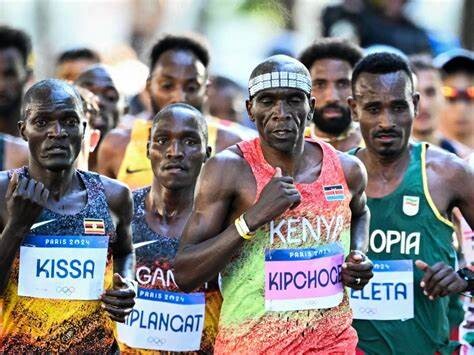
Kipchoge, who was the two-time defending Olympic champion pariticpating in his fifth Olympics, is now 39 years of age.
And his struggles here follows a 10th place in Tokyo, leaving an uncertain future in the sport after failing to complete the distance for the first time in his career.
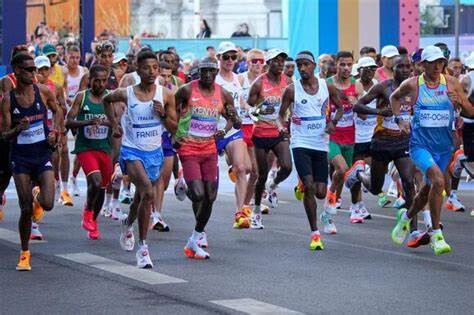
“I had a pain in my back at about 20km and decided not to finish and try to get out,” he said. “The hills didn’t affect me at all. The pain made me stop."
“I walked for 2km and had more than 300 people on either side of me walking with me. That’s why I don’t have my shirt, the socks, the shoes, the race number.”
Kipchoge accepted his ‘DNF’ was part of the event and “that’s life,” before making a comparison with boxing.
“Today was a tough day at the office. You can train for a very long time but one day, it can happen,” he added.
“It’s like boxing. You can go to a training camp for five months and be knocked out in two seconds. But life will continue.
“This is my worst marathon. I have never done a DNF [did not finish]. That’s life. Like a boxer, I have been knocked down, I have won, I have come second, eighth, 10th, fifth – now I did not finish. That’s life.”
Fans started to question whether Kipchoge will race the distance again, but Kipchoge has not rushed to make any decision, with a rest next to decide what he will do 11 years after switching to the 26.2-mile distance.
“I don’t want to comment on what will happen tomorrow. I want to try to evolve - if I don’t evolve, then I do other things,” he said.
“I don’t know what my future will hold. I will think about it over the next three months. I still want to try to run some marathons.”
Kipchoge could be seen gifting fans his shoes and vest after stepping off the course, while he also knocked back pleas from his fellow runners to push through the pain.
“The other runners were telling me to push on,” Kipchoge revealed. “But I was telling them, 'No, I have pain, I can’t'. I could feel the love and respect from them.”
Kipchoge could be seen at the finish line, following a lift from officials, with fans flocking to greet the legendary Kenyan.
Kipchoge then gifted his vest to a young supporter before attending to his media duties.
(08/13/24) Views: 118Jack Rathborn







